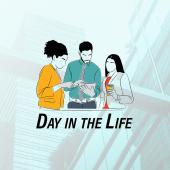I recently watched the movie Christopher Robin for the second time. Originally released in theaters in 2018, it was inspired by the Winnie-the-Pooh children’s books written by A.A. Milne and illustrated by E.H. Shepard in the 1920s. The books contain the adventures of a young boy named Christopher Robin and his animal friends including Winnie-the-Pooh (a teddy bear who loves “hunny” and is usually just called “Pooh”), Piglet, Eeyore (a donkey), Rabbit, Tigger (a very enthusiastic and “bouncy” tiger, Owl, Kanga (a mother kangaroo), and Roo (her baby). The popularity of the books has remained consistent since their publication, spawning a series of other stories, movies, songs, and additional artistic works.
The premise of this latest movie is that Christopher Robin is now a grown man. He has been through the first World War and has a wife and a young daughter. His carefree spirit has disappeared as the pressures of work and providing for his family occupy his time. When his young daughter asks him to read to her before bedtime, he chooses a history book rather than a bedtime story.
He has scheduled a weekend at the family’s country house with his wife and daughter only to have his plans upset by a boss demanding that he spend the weekend working. Before the weekend is over, he must come up with a plan to cut costs and save jobs. Under this pressure, he elects to work while his wife and daughter leave for the country weekend visibly disappointed. It is clear from his family’s reaction that this isn’t the first time he has had to choose work over family — a decision familiar to many of us. Christopher clearly wants to be with his family but the need to work, to provide, and to be there for his employees pulls on him as well (like many of us).
It is at this point that Winnie-the-Pooh reappears in his life. Believing himself to be overworked, Christopher doesn’t quite think that Pooh is real. He soon discovers that his childhood friend is quite real and it is a poignant reunion. However, Pooh’s appearance soon causes a disruption that Christopher cannot afford and he must get the bear back to where he belongs, back to the woods behind the country house.
He and Pooh take the train back to the country to get Pooh back home. On the train, Pooh asks him about his briefcase and he tells Pooh that it is his “case of very important things.”
When they finally arrive at the country house, Christopher hides in the bushes from his wife and daughter even as he glimpses them through the windows. He tells Pooh that he doesn’t want Madeleine to see him.
Pooh then asks, “What’s a Madeleine? Is it more important than your case of important things?” Christopher replies, “Madeleine is my daughter so yes, of course, absolutely! She means the world to me.”
Pooh then inquires, “Then why isn’t she with you?”
“Why isn’t she with you?” — a straightforward, but profound question.
Why aren’t you with her? With him?
Why are you working this weekend?
Does your life truly reflect your priorities?
How many vacations have you had to cancel?
Our calendars speak more truth about what we prioritize than we realize. On what and with whom do we spend our time? Work is definitely necessary and for many of us, it provides a great deal of satisfaction. However, it can also become all-consuming to the point where we let the urgency of it crowd out the necessary in our lives.
How many anniversaries, birthdays, school plays, awards ceremonies, or family events have we missed, skipped, or forgotten because we had to work? I know that I have missed more than I can count. And I have convinced myself that I could “make it up later.” I’ll buy someone a really nice gift instead. We’ll have a big celebration next year. Unfortunately, those thoughts are just to make myself feel better. You cannot make up a lost moment. Once lost, it’s gone.
I don’t mean to evoke guilt, regret, or even shame as I write this but rather to give us a moment to pause and consider what is really valuable to us. It is true that we will disappoint people. We won’t make it to every milestone event. But could we do better than we are doing now?
As much as we need to impart the value of hard work and lead by example, that example should also include the importance of prioritizing what and who we value. We must show, not just tell, those who matter to us that they do matter to us.
So, restating the wisdom of Winnie-the-Pooh, I ask you:
“What’s your Madeleine?” and “Is she or he with you?”




